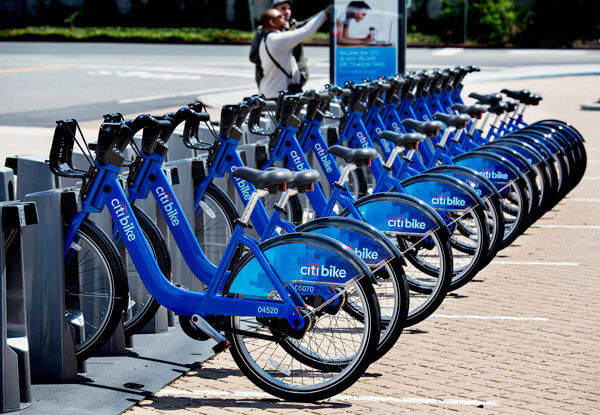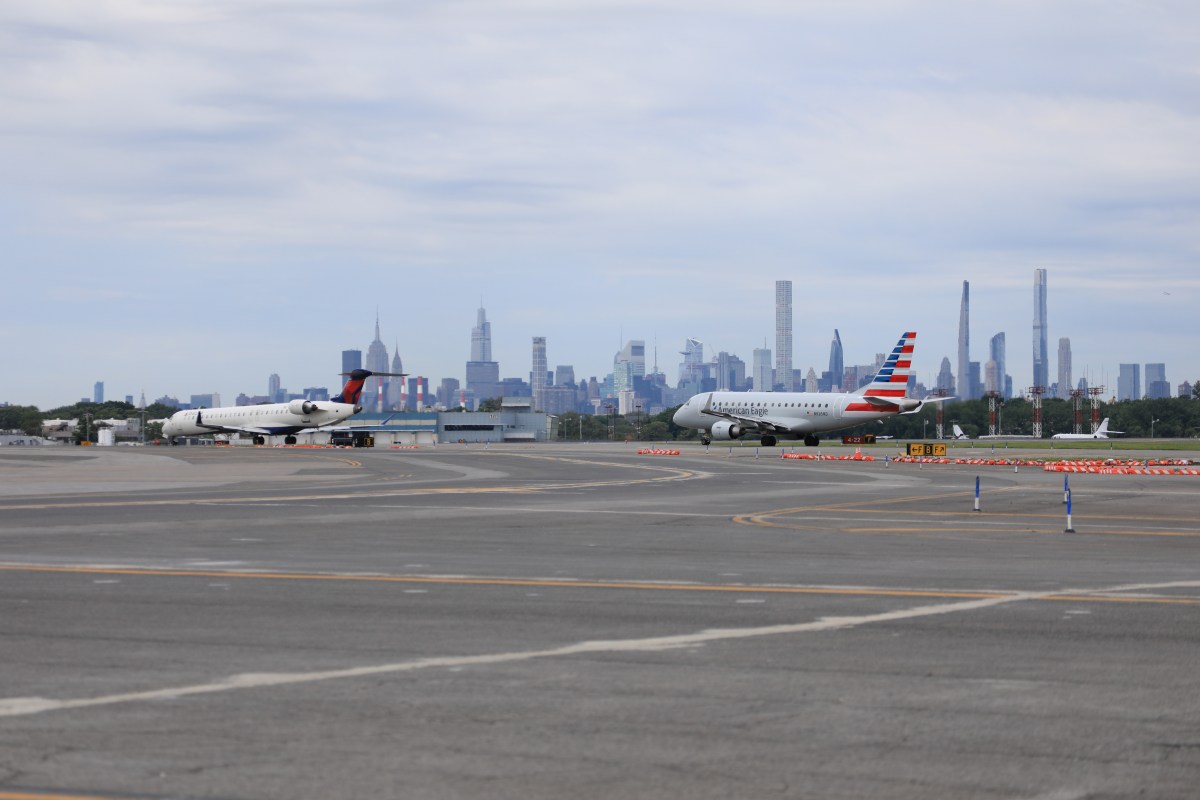By Joy Wiltermuth
When it comes to elder care on the Lower East Side, seniors at the Grand Street Settlement say forget about business models and frozen meals, they prefer the old-fashioned way — community, home cooking and hugs.
The Grand Street Settlement, at 80 Pitt St., is a place where seniors can come for a hot meal. For some, it is the only one of the day. There are checkups for hypertension, visits with a social worker and, every second Monday, a barber comes and gives haircuts. But for some in the low-income senior community, being well is about more than just social services.
Last Sunday, instead of going to church, Maria Martinez, 82, visited a shut-in elder.
“Forgive me, but I am going to do something excellent,” she said, discussing her visit to the man in an interview later that week at Grand Street Settlement. “Lord, I am going to visit one of your children, who is very sick and I would rather go there.”
Martinez is part of the Baruch Elder Services Team, or BEST, a peer-volunteer organization that provides medical, social and support services to fellow residents at the Bernard M. Baruch Houses at 72 Columbia St.
“We love him very much, but he is very, very sick,” she said of the man she visited. She brought groceries and soup, which she made herself, and kept him company. Martinez said the homebound senior has no family, having fled from “Fidel Castro’s Cuba” 40-some years ago, and was alone. “He was crying. I said, ‘Don’t cry, I will be coming back,’ ” she said.
“You are my brother. How come you say you have no family? Who am I? I am your family. Don’t ever forget that,” Martinez said she told the sick neighbor to reassure him.
Martinez has lived in the Lower East Side for more than 61 years, before the F.D.R. Drive was built. She remembers when she used to dip her feet in the East River.
She has been a volunteer with BEST for more than five years, but her work in the community began long before that.
“I was 68 and had nothing to do. I said, ‘We are going to get a group together,’ ” she said. Together with about a dozen other retired friends, Martinez and the rest of the group made it their business to find those in the community who were alone.
“We do it freely. What am I going to do, watch television?” she said.
She accompanies less-ambulatory seniors to the hospital and on doctor’s visits. Sometimes she picks up their prescriptions. Other times, it’s cooking or translating among the Spanish-speaking community.
“When this program [BEST] came, it was a blessing,” Martinez said. “That is what keeps me alive,” she said.
“She makes a lot of alcapurria and beans,” Estrella Sierra, a BEST volunteer who has lived in Baruch Houses for the last 10 years, said of Martinez. Alcapurria is a Puerto Rican dish made with yautia and plantains — a trademark of Martinez’s cooking.
“At the beginning, I didn’t want to go to BEST,” Sierra said, but Martinez coaxed her into getting involved. There are 18 active senior volunteers amid Baruch’s naturally occurring retirement community, or NORC. The complex houses nearly 1,350 residents over age 60 and is one of Manhattan’s largest NORC’s.
“I love to talk to people,” Sierra said. A month ago, she called a fellow Baruch resident to invite her to a birthday party. The woman was surprised and said it was the first time any of the residents had celebrated her birthday. “It really touched me,” Sierra said.
The BEST staff members include nurses, whom Sierra said were friendly, calling them “part of the family.”
“We feel secure. You come down at 8:30 a.m. and have coffee,” Sierra said. “Sometimes we cry together, sometimes we have a little argument. But, five minutes later, it is O.K.”
For the volunteers at the Grand Street Settlement, helping out and staying active is what makes their lives rich. A full schedule of elder programming for the 2,000-strong local community, runs from 8:30 a.m. to 3 p.m., weekdays. Cultural activities and classes reflect the Lower East Side’s demographics and many are offered trilingually, in English, Spanish and Chinese. Friday morning is tai chi class and is followed in the afternoon by salsa and ballroom dancing. The center’s activities celebrate the ethnic heritage of the Lower East Side and are a focal point for cultural engagement.
The Grand Coalition of Seniors is another cornerstone of the Grand Street Settlement. It has provided supportive, nurturing opportunities for nearly 40 years and serves nearly 64,000 free, nutritious meals annually.
Fran Sussman taught early-childhood education and worked around the corner at P.S. 140 for years. After retirement, Sussman became active in the Grand Coalition of Seniors at the urging of colleagues and has volunteered for the past five years.
“I was fascinated by the things they were doing,” she said. “I was a teacher for little kids. I’m used to getting hugs from 4-year-olds. Now I get them from 84-year-olds.”
Once a week, Sussman teaches English language classes for seniors through the E.S.L. program. Along the way, she picked up a bit of Mandarin, which many of her students speak.
“I can say ‘hello’ and ‘goodbye,’ ” she said, noting that cultural activities bridge the communities.
“This is like a second home for a lot of members,” said LiWa Chiu, an active Asian volunteer. Many of Grand Street Settlement’s Asian elders travel from surrounding neighborhoods and come for its rich, cultural activities.
Chiu started five or six years ago, participating in the morning tai chi sessions. Now, she co-teaches advanced English conversation and is active in many programs. She called cultural exchange “a two-way street.” Chiu is active at the Asia Society, Brooklyn Botanical Garden and Metropolitan Museum and procures discounted tickets for seniors.
“We try to get everybody to participate instead of staying home doing nothing,” Chiu said.
Connie Tan, another Asian senior involved in the settlement’s volunteer programming, co-teaches the advanced English language conversation class with Chiu. Tan’s activities are geared toward cultural activities, such as Chinese painting, calligraphy and macramé classes.
“We need funding,” Tan said, noting that the macramé class was being cut back. “We need to keep the macramé class.”
“It is a very special art,” Sussman added, pointing to tree branches with pink, delicately knotted macramé blossoms. Craft sales are part of the Asian seniors’ fundraising efforts, and the macramé classes are popular.
Indeed, anticipated cuts by the Bloomberg administration to senior programs are causing great anxiety over the potential impact on the Grand Street program.
Sussman, a volunteer assistant to Grand Street Settlement’s social worker, Mei Guey, agreed that funding for programs is an issue. Guey was credited with starting the Grand Coalition of Seniors’ cultural activities, but because of budget cuts, divides her time among three other programs for seniors. In fact, some of the seniors’ activities already have been scaled back.
“The program is needed so much. We would be lost if we had no place to go,” Rosa DeLosSantos said, a volunteer for the past three years.
“Over here, you can communicate with people,” DeLosSantos said. She helps out in all areas, serving food, packaging weekend meals and participating in social activities. “On the weekend, people are lost because they have no place to go,” she said.
On May 15, seniors rallied at City Hall in opposition to the expected budget cuts, restructuring plans and changes to the Meals on Wheels program that might include increasing the amount of cold, reheatable meals instead of hot meals. Sussman said such issues were stressing them out.
“They are closing some of the senior centers,” she said. “Now the city is saying, ‘Prove to us that you are doing a good job.’ I have my own bone to pick with that.”
Others at the settlement house shook their heads in agreement. They said being engaged, active and interested were critical for keeping their minds functioning.
“It has to have an effect on your total well-being,” Sussman said of the programs’ benefits. “I don’t know how they could possibly measure all of these things.”
Mayor Bloomberg and the Department for the Aging have launched modernization initiatives in order to meet the needs of New York City’s aging population. By 2030, the administration estimates a 46 percent increase in the city’s senior population. They said they are looking at ways to approach health and wellness to serve the seniors of today, as well as those of the future.
“Seniors’ tastes and backgrounds change,” said Christopher Miller said, DTFA’s director of public affairs. “My grandparents certainly wanted very different things than my parents do.” He said the city’s home-delivered meal program was rated highly favorable in the Bronx and that it could serve as a model for other boroughs. “It is really about choice and flexibility,” he said, and noted the option of having a hot meal delivered daily or flash-frozen meals delivered twice a week.
But Martinez of Baruch’s BEST program worried about the headway frozen meals had already made in the Bronx. She fears that the Baruch seniors will no longer be able to do their own cooking for the senior day programs.
“That is going to be all over — only one dish,” she said of the flash-frozen meals. “How would you like it?”
The Grand Street Settlement was founded in 1916. It provides social services and a diverse schedule of activities to all ages, ranging from Head Start and youth development to adult and senior activities and programs. To find out more about the programs offered or how to volunteer, contact Jessica Williamson at jwilliamson@grandstreet.org or 212-674-1740 ext. 207.
Fran Sussman, left, and Rosa DeLosSantos
Connie Tan, left, and LiWa Chiu






































